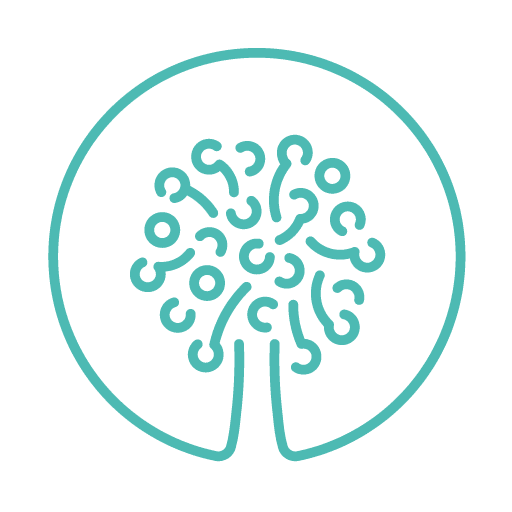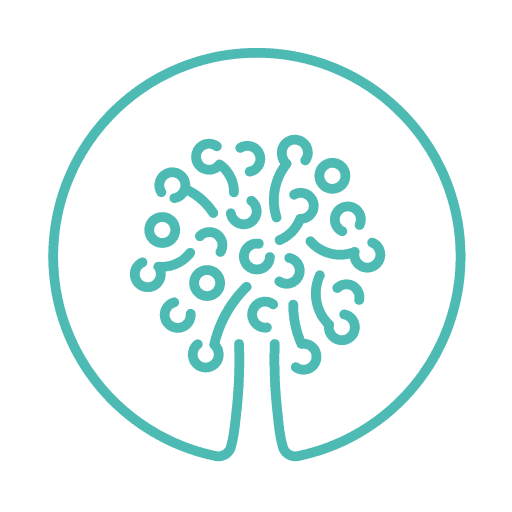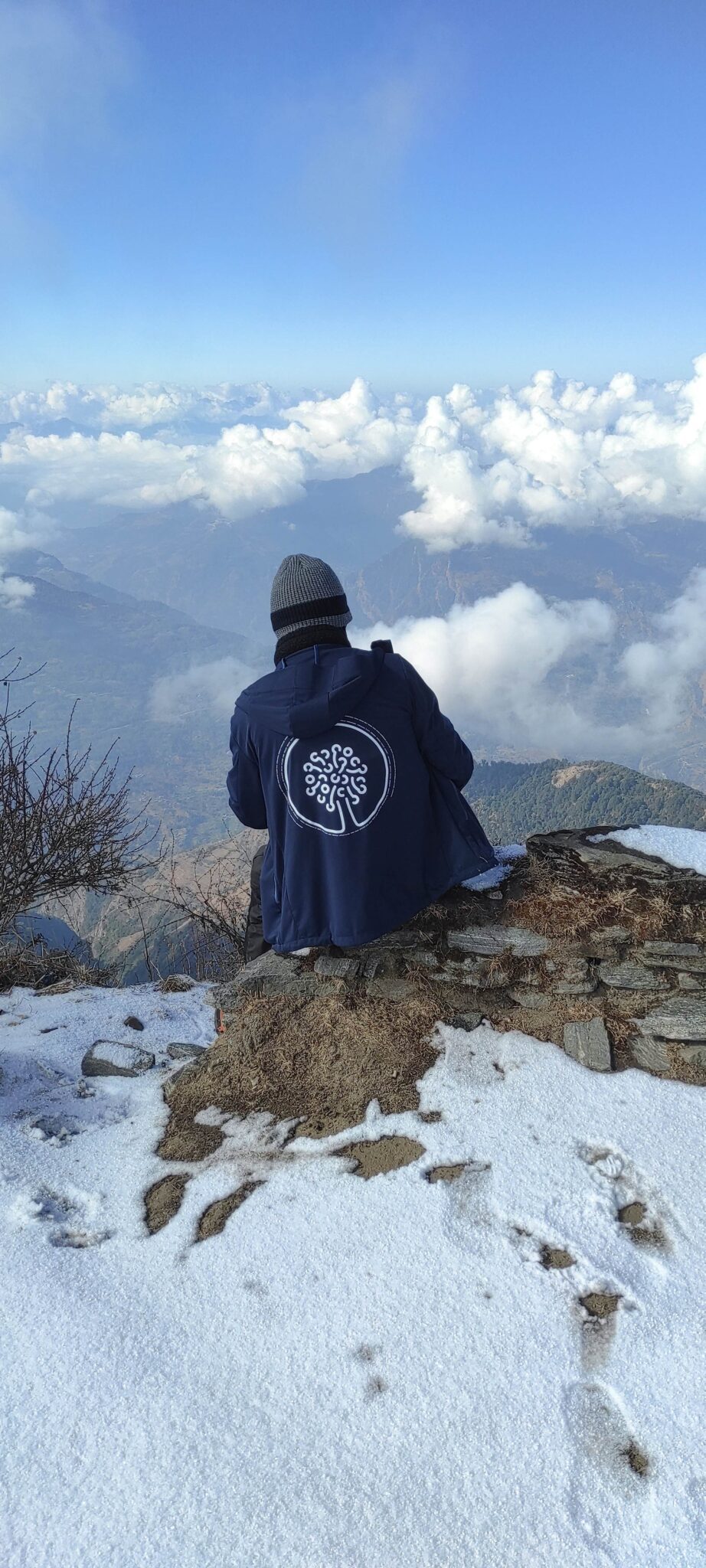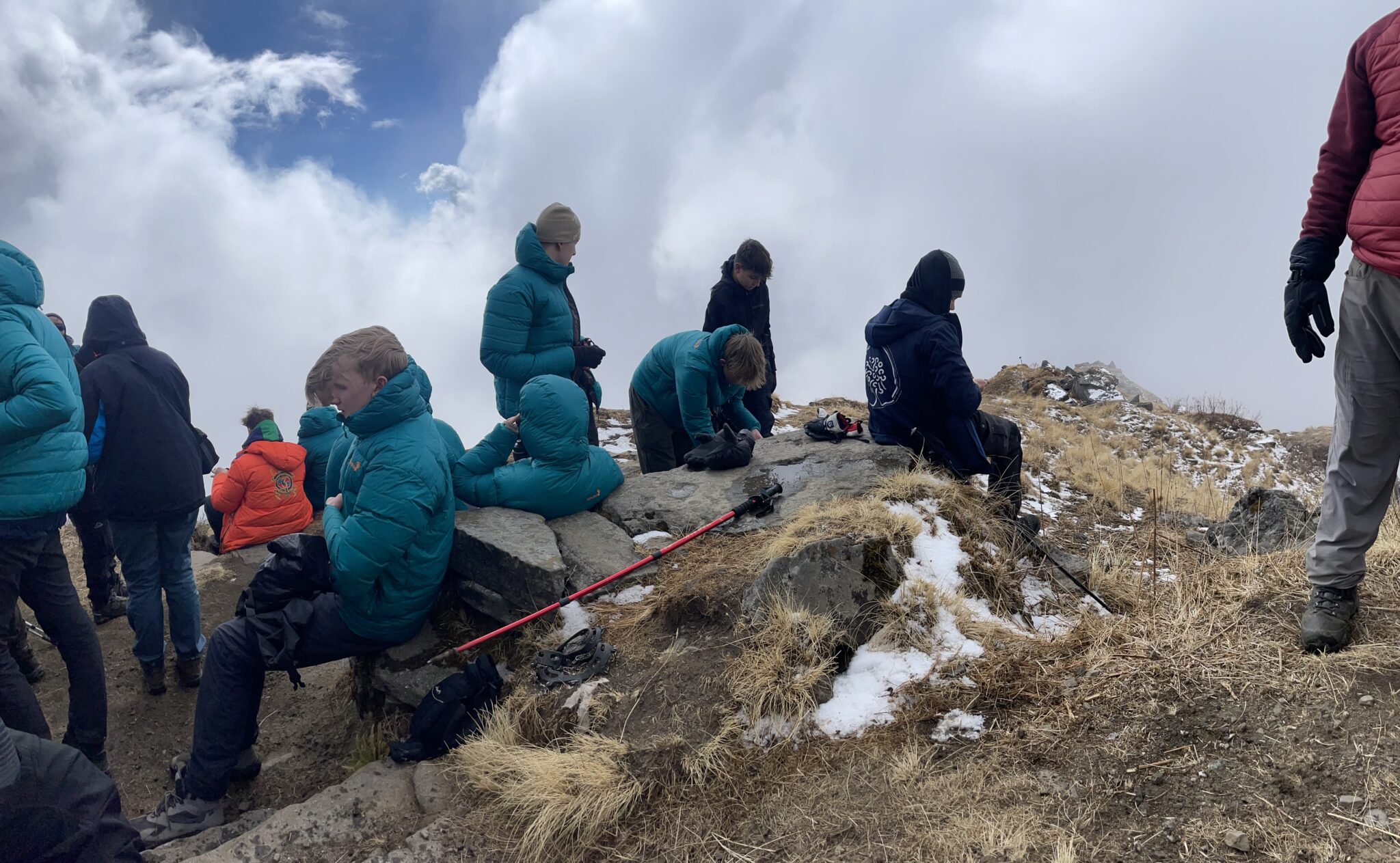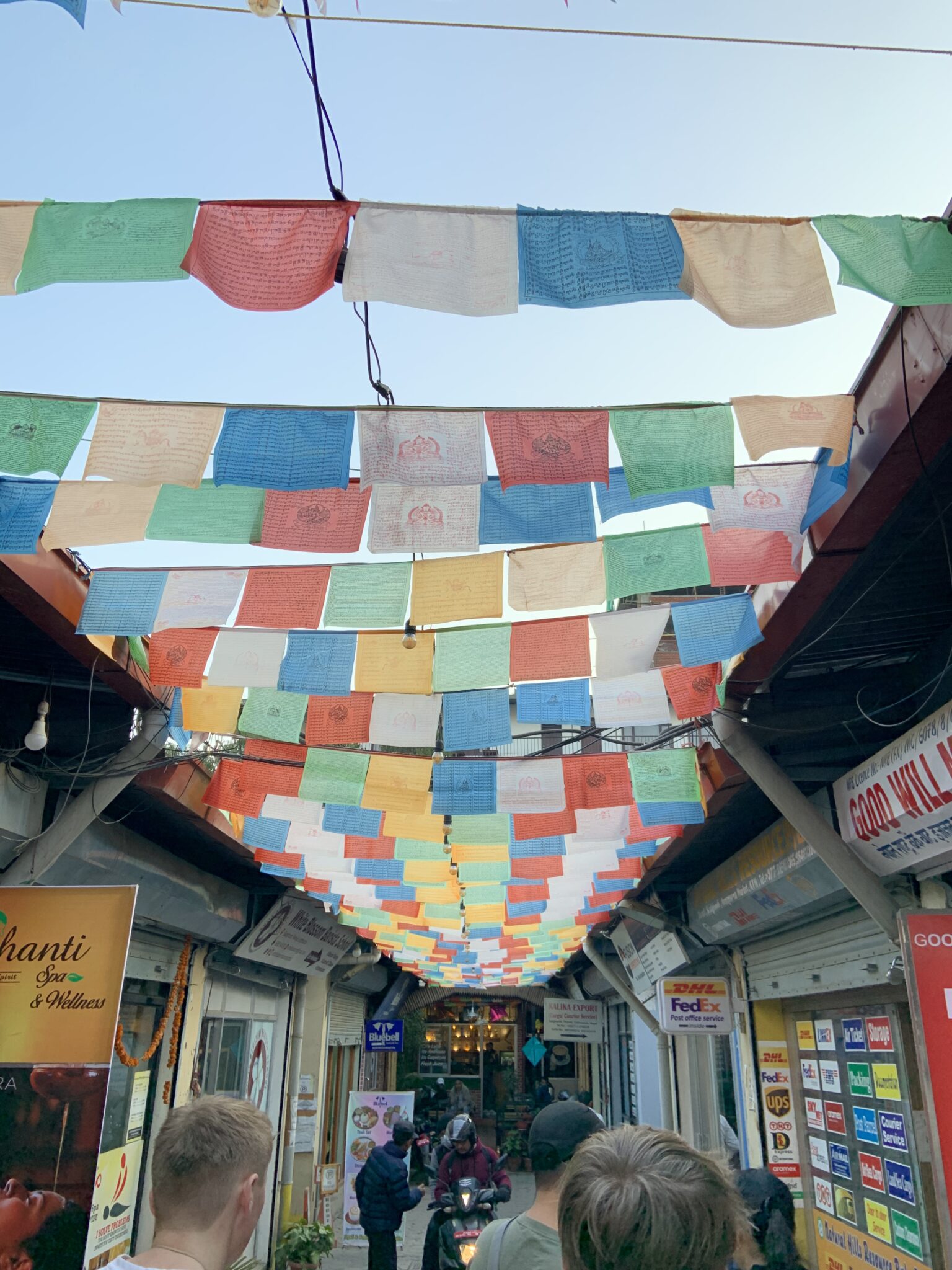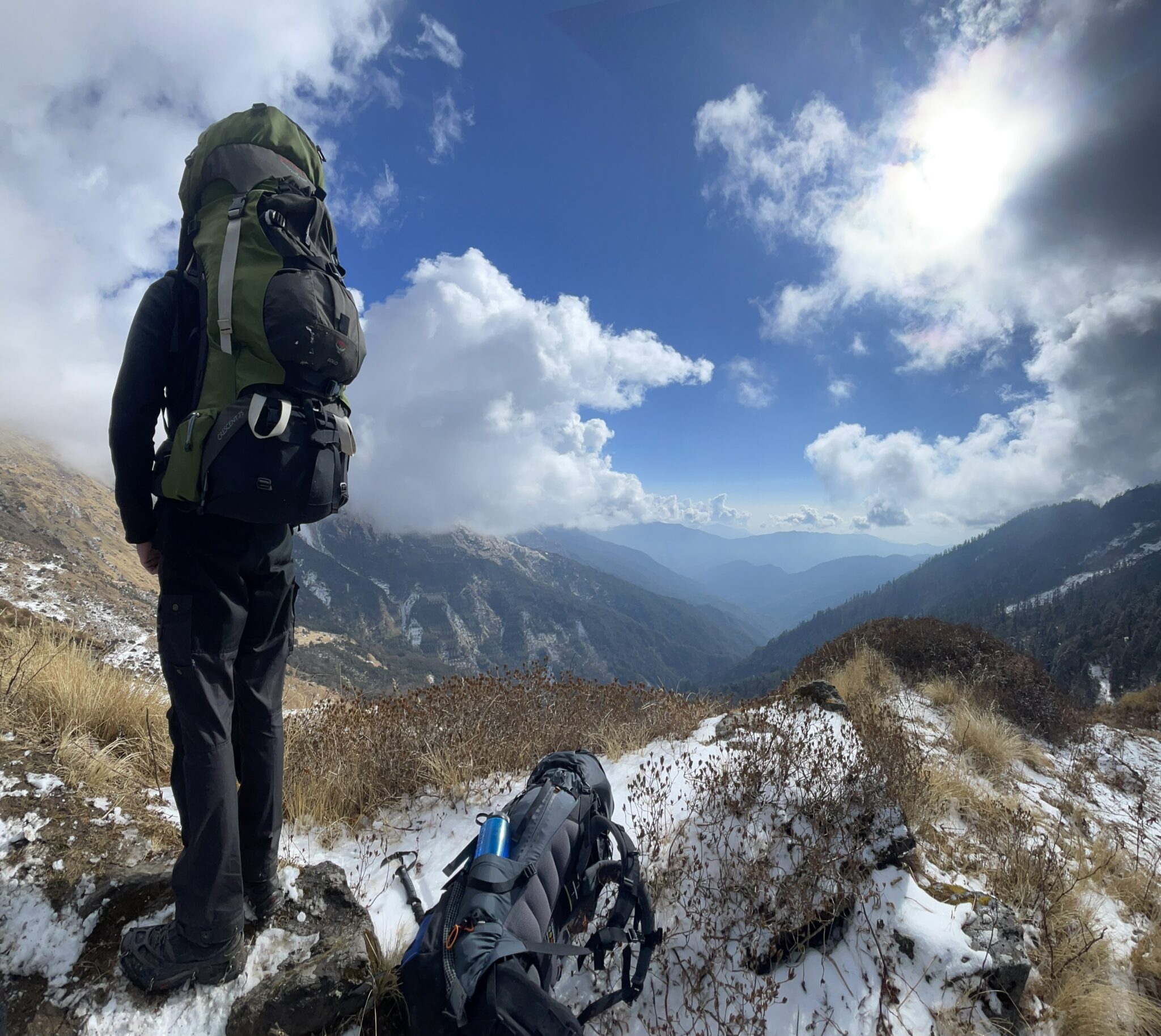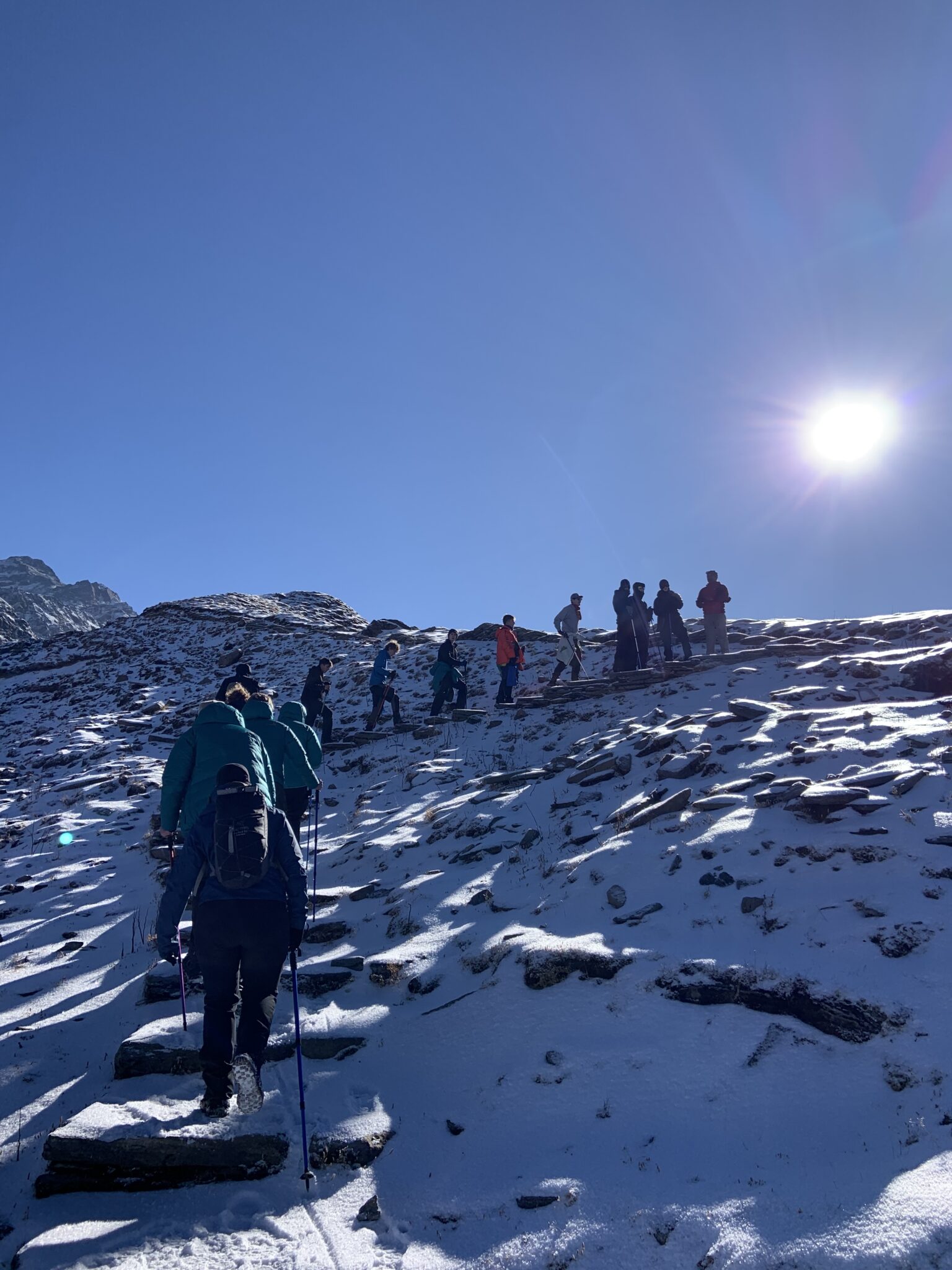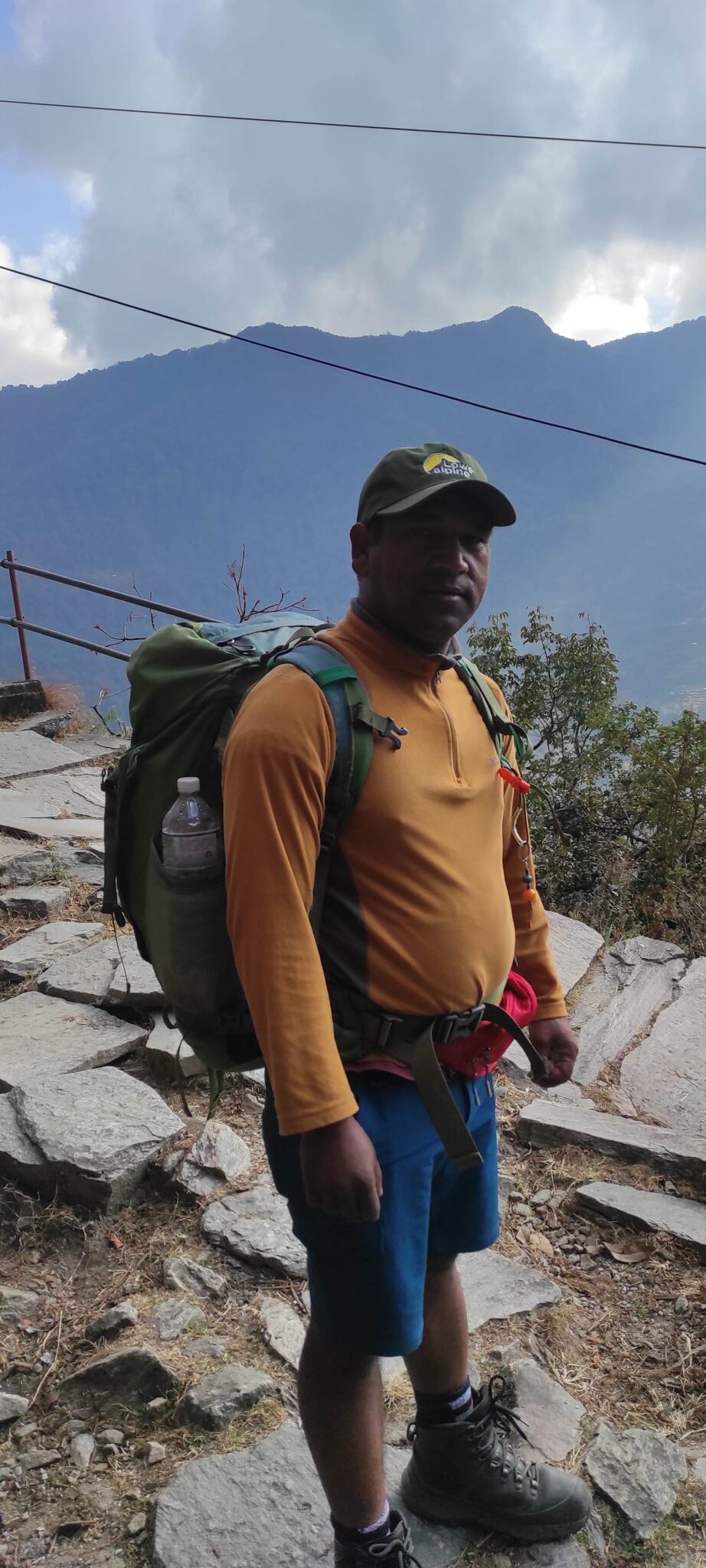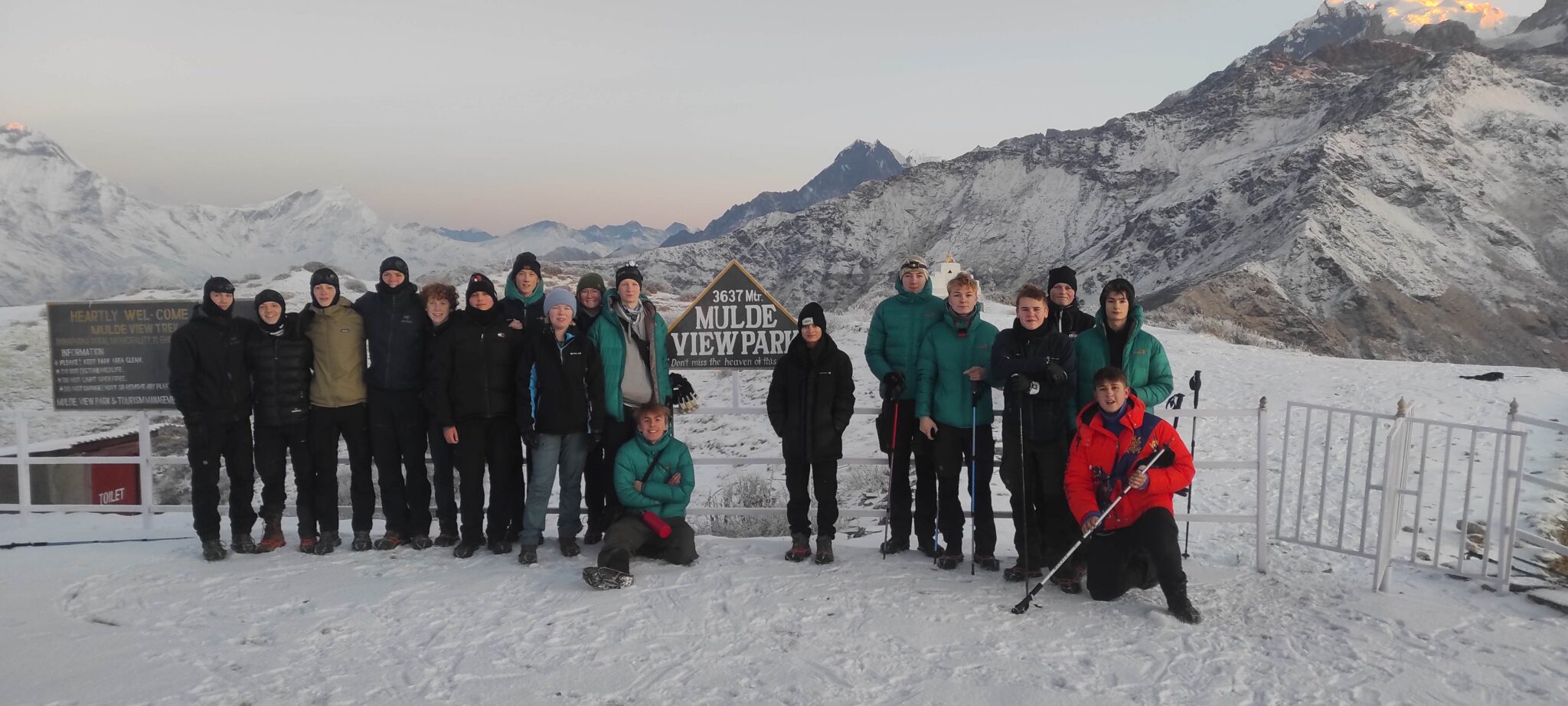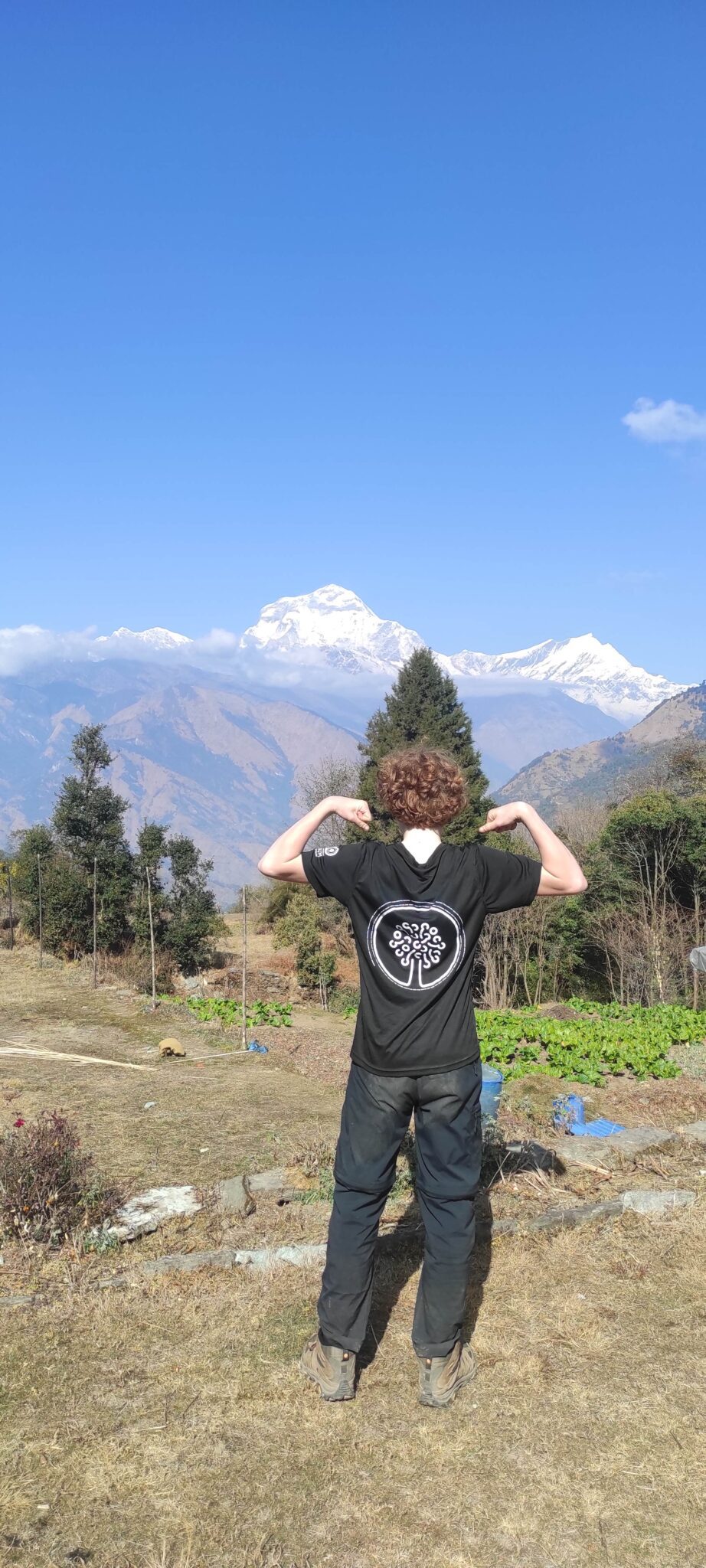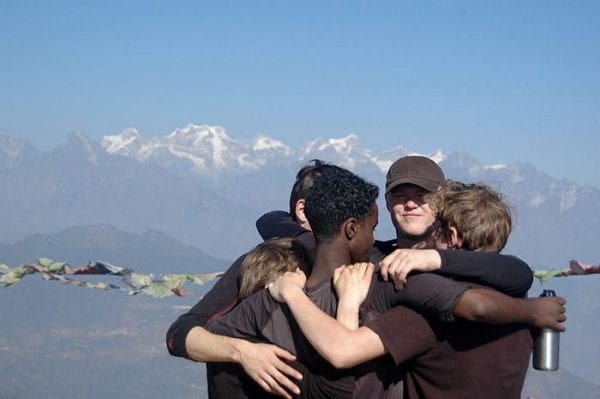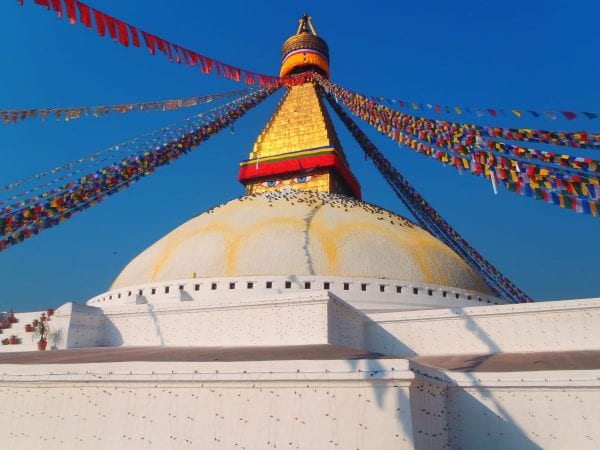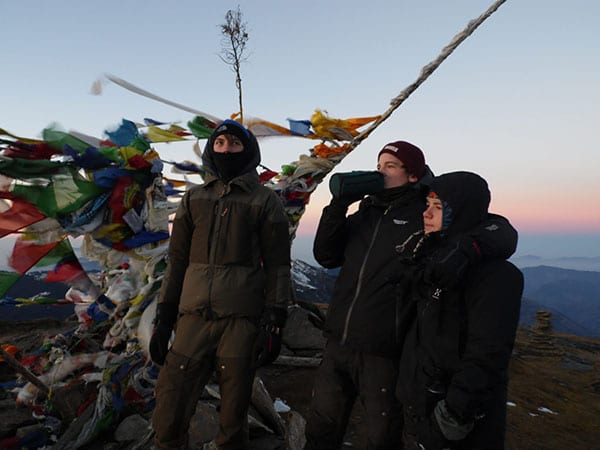
Nepal - High Trek Himalaya
Category
Cultural studies, TravelNEPAL
Nepal Adventure Trek - Himalaya



Nepal Hightrek aims to develop students' understanding of the unique cultures of high alpine Nepal. To do this, we trek into the Himalayas and experience first-hand the unique conditions in which people and nature exist here. We also learn a lot about ourselves and our values as human beings by completing a tough physical trek with skilled Nepali guides.
Academic programmes
The training focuses on 3 pillars.
- Understanding Nepal's unique culture and history, and the challenges it faces in terms of conservation, climate action and sustainability. Nepal is a country that has undergone tremendous development in 80 years, but where conservation, climate change, and social and political challenges are also evident in everyday life.
- Physical training for the trek itself so that students are physically fit enough to complete the trek.
- Team building of the team so that we go as a unit and are ready to learn together.
The 3 SDGs I have chosen are not the only ones we can work with, as there are many opportunities to work with sustainable development in Nepal. As part of the work, we will get in touch with young people in Nepal and hear about what they see as their most important challenges.
PRACTICAL
To complete a trek in Nepal, you need equipment. A specific packing list is sent and I help and guide the students in getting the necessary equipment and can also help get things cheaper in Nepal. In Denmark, we work together with experienced experts in Spejdersport.
The trip
The primary purpose of the trip is to trek in the Annapurna area. We will pass through all climate zones, from tropical, through subtropical rainforest, temperate forest and high alpine grasslands until we reach the true high alpine with ice and snow.
We also get to see first-hand how climate change is affecting life in mountain villages.
During the trip, we will visit our friendship school in Swanta and learn about life in the village and see how the Nepalese education system works. Here we will see a self-sufficient community.
After the trek, we'll visit Kathmandu, the country's capital, and visit Hindu and Buddhist temples to see how religion has a huge influence on life and culture.
We'll also see first-hand how difficult it is to create a sustainable city without effective local planning and our local guides will explain about the caste system and the traditions that shape life in Nepal.
REQUIREMENTS
Trekking in the high mountains of Nepal is not just hard. It is most likely the physically hardest thing you have ever tried. Trekking for many hours in rough terrain and thin air, takes a toll on especially legs and lungs. Therefore it takes a strong will and a reasonably good physical condition. You must be ready to work out quite a lot leading up to our trek, and you must be in good health.
There are also requirements for good sturdy hiking boots that have been broken in and a solid backpack. All students also need warm and durable clothing for high alpine trekking. We help guide you on purchasing equipment and much of it can be bought cheaply in Nepal, but you should expect to spend some money on equipment if you don't already have it or can borrow it.
ECONOMY
13500 kroner
In addition, you should allow about 1000 for pocket money and tips for porters and guides
Buying equipment in Kathmandu requires additional funds.
PASSPORT AND VISA
You must have a passport valid for at least 6 months after departure from Nepal.
Travelling in Nepal requires a tourist visa, but it can be acquired quite easily at Kathmandu airport.
SAFETY
We have highly trained local guides on the trek and the responsible teachers are experienced in outdoor life and first aid. We purify our own water on the trek. The teachers in charge have experience with altitude sickness, and the profile of the trek is designed to allow for proper acclimatisation to the heights. Nepal is a safe country to travel in and our local guides are always fully informed about the situation in the country.
We have never had challenges with serious crime in Nepal.
Travel diarrhoea, mild cases of altitude sickness and minor strains can be a challenge, but we are used to working with it, and in severe cases we have good contacts at the country's best private hospitals and guides trained in high altitude medicine.
Traffic is a risk and you need to be careful when travelling on foot.
VACCINATIONS
Hepatitis A, Typhoid, Diphtheria. In addition, Dengue, Hep B, and Cholera can be an additional option.
If you originate from a country, where yellow fever is a risk, documentation for yellow fever vaccination is needed.
AFTER THE JOURNEY
After the trip, students will do a project where they explore a specific issue related to sustainable development in Nepal.
These projects will be presented to local primary schools to give them an increased knowledge of life in Nepal and to get students to reflect on their experiences and learning.
We will also be organising a fundraiser for our Friendship School in Swanta, so students can see for themselves what the funds go towards.
Teachers
 |
||
| Peter F. Andersen pfa@ranumefterskole.dk |


